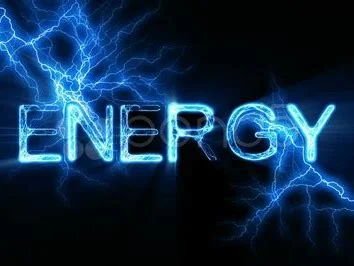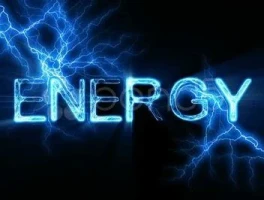The Lights Are On, But Is Anyone Home? When the Grid Sends Mixed Signals
Okay, folks, bear with me for a moment. I just stumbled across something… unusual. A digital ghost in the machine, perhaps? I logged on this morning, bright-eyed and bushy-tailed, ready to dive into the latest energy breakthroughs, and instead, I was met with… a robot check? A message about unusual network activity? It’s like walking into a packed stadium only to find the game’s been canceled, the players are gone, and all that’s left is the echo of the crowd that was supposed to be there.
This isn't exactly the kind of electrifying news I was hoping for, pun absolutely intended. I was ready to talk about the incredible strides we're making in renewable energy, the potential of new battery technologies, maybe even chew on the implications of the latest fusion experiments. But instead, I’m staring at a digital shrug.
A Glitch in the Matrix?
Now, I know what you’re thinking: “Aris, it’s just a server hiccup. Calm down.” And you’re probably right. But in a world increasingly reliant on interconnected systems, even a momentary blip can feel… unsettling. It’s like that scene in a sci-fi movie where the protagonist realizes the world isn’t quite what it seems. Are we sure everything is running smoothly behind the scenes? Are the algorithms humming along as they should? Are we truly in control of the energy grid, or is it slowly developing a mind of its own?
This whole thing reminds me of the early days of the internet. Remember dial-up? The agonizing wait for a single image to load? We take for granted the seamless flow of information today, but it’s built on layers of complex infrastructure, any one of which could fail. And when it comes to energy, the stakes are even higher. A disruption to the power grid isn’t just an inconvenience; it can have devastating consequences.
It makes you wonder, doesn’t it? What kind of vulnerabilities are lurking beneath the surface of our increasingly digital world? What failsafes do we have in place to prevent a large-scale blackout? And perhaps most importantly, how can we build a more resilient and secure energy infrastructure for the future? Because let’s be honest, a robot check isn’t exactly a reassuring sign.

This is the kind of thing that reminds me why I got into this field in the first place. The need to understand, to innovate, to build a better, more sustainable future. But it also underscores the importance of vigilance. We can't afford to become complacent, to blindly trust that everything is working as it should. We need to be constantly questioning, constantly probing, constantly seeking new and better ways to power our world.
The Dawn of Energy Independence?
So, what does all this mean? Well, for starters, it’s a reminder that technology is never perfect. It’s always evolving, always changing, and always subject to the whims of fate (or, you know, a server outage). But it’s also an opportunity. An opportunity to learn from our mistakes, to strengthen our defenses, and to build a more robust and reliable energy system.
I think we're on the cusp of something truly extraordinary. Imagine a world where energy is clean, abundant, and accessible to everyone. A world where solar panels are as common as windows, where batteries can store enough power to run entire cities, and where the threat of climate change is finally behind us. It’s not just a pipe dream, folks. It’s within our reach. But it’s going to take hard work, dedication, and a willingness to embrace new ideas.
And maybe, just maybe, a little bit of healthy skepticism. Because as much as I love technology, I also know that it’s a tool. And like any tool, it can be used for good or for evil. It’s up to us to ensure that we’re using it wisely, ethically, and responsibly. What if we could harness the power of the sun, not just to generate electricity, but also to create new fuels? What if we could develop fusion reactors that are safe, efficient, and virtually limitless? And what if we could build an energy grid that is so resilient, so secure, that even a robot uprising couldn’t bring it down? I have to say, when I think about the possibilities, my mind just races.

